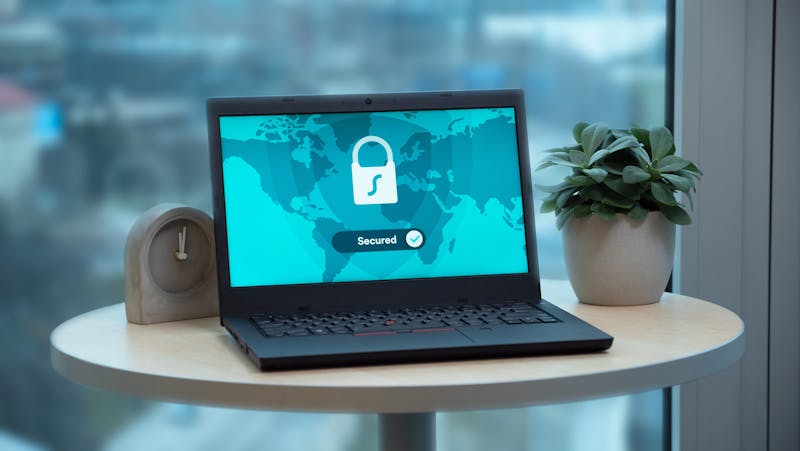Which VPN Service Is Right For My Business?
The massive shift to remote work due to the pandemic has increased the need for greater cybersecurity measures. According to OpenVPN, businesses have expanded their usage of virtual private networks (VPNs) by 68% directly because of COVID, and 99% of employees expect business VPNs will be used even after COVID.
Business VPN usage will become the new normal. Consider the following to ensure you pick the best VPN service for your company.
Consumer VPN vs. Business VPN
A VPN generally works by securing a device’s internet connection through data encryption and hiding its IP address. It connects a device to a server that may be in an entirely different location from where the device actually is, allowing access to services and websites local to the VPN server, while preventing other parties from seeing the device’s internet activity, including its ISP.
There are key differences between consumer and business VPN services that it’s worth getting the latter if you are serious about securing your company’s internet activity.
Consumer VPNs are typically for personal use, such as unblocking content that’s locked to certain parts of the world. IP addresses could be shared by different users and change every time a user starts a session.
Business VPNs are more about providing a private and secure network for multiple users, whether they’re in one office space or spread across the world. Users are assigned dedicated IP addresses to connect to a dedicated server, with IT administrators being able to monitor user activity and control what they can access in the network.
How to Choose a VPN for SMBs
There are plenty of details to pore over when choosing a VPN, but we’ve narrowed down this list to the most important elements to consider for small to medium-sized businesses looking for an appropriate VPN service.
Price
As with many major business considerations, your choice of VPN starts with how much your budget can handle. Most business VPN service providers offer tiers of subscription plans to cater to different needs.
As is usually the case, the longer the plan, the more cost-efficient it is in the long run. You don’t want to get locked into a long-term contract immediately, however, only to find out that the service is not to your standards. Try it out for a month to see if it’s the right fit for your business before making a commitment.
Another factor to consider is the number of devices and users that are supported, which is also typically gated by price tiers. Choose one that covers your entire company.
Servers
A crucial component of a business VPN is that it allows for secure connections to your company’s internal network no matter where workers are. This is only possible when a VPN has servers in the locations where your network’s resources are stored and where employees are accessing your network from. Trying to connect to a network from a VPN server that’s not in the same area as the user or the network will lead to suboptimal speeds and poor performance.
VPN servers can also be rendered inaccessible for a number of reasons, from server maintenance and sudden spikes in traffic to malicious activity such as virus infections and DDoS attacks. Factor in the number of servers a VPN service provider has, as the more they have, the less likely the chance of their servers being overloaded or compromised.
Security
Every decent business VPN service provider reaches a baseline level of security that works. It is just a matter of what security features are there and how well they’re implemented.
Does the VPN support multiple protocols for varying levels of speed and security? How many layers of encryption does your data go through? What authentication measures are in place for users logging into the network? Is it safe to migrate resources onto the provider’s cloud servers? In the event of VPN connection failure, is there a kill switch for devices accessing the network?
A centralised management console would greatly help in controlling user access to your company’s network and monitoring activity to guarantee everyone is only using it for work purposes and in secure environments.
Data Logging Policy
Even though VPN service providers may advertise that they don’t log any data from user activity, such claims are almost always surrounded by fine print caveats that they do, in fact, log _some _data. There is no getting around VPNs logging user activity to ensure only verified users have access to the secure network.
What you can do is take the time to read the data logging policy of the VPN service providers you’re considering. If they’re being transparent, their policies should show what information they store, such as IP addresses and session times. Picking just any VPN without doing so could make your company a victim of massive data leaks, such as the to data breach of SuperVPN, GeckoVPN, and ChatVPN, where 21 million free VPN users private information was exposed.
Get Expert Business VPN Support
The growing adoption of VPNs is reflected in the global market, as it is projected to reach $77.1 billion by 2026. It can be difficult to find the VPN that perfectly suits your business among the host of service providers competing in the burgeoning industry. Hopefully, with these tips, you get to make the best decision for your company.
To guarantee the security and privacy of your business’ network, look to the network support experts at Evolvit. We have plenty of experience setting up and maintaining VPNs for Bristol businesses. Contact us today for a consultation.






